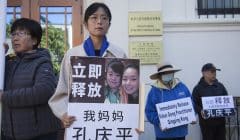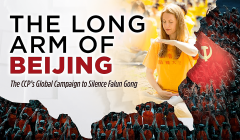New Book “Who Are China’s Walking Dead?” Reveals the Twisted World of CCP Officials
Features insights from officials who fled China because of Falun Gong Persecution
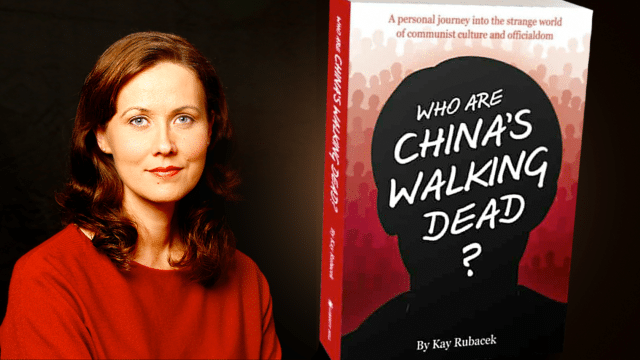
Who Are China’s Walking Dead? (Liberty Hill Press, 2020) features interviews with former Chinese Communist Party (CCP) members and officials about the inner workings of the regime and the strange lives of its operatives.
Two such operatives interviewed for the book are Guangsheng Han, and Fengjun Hao. These two former officials are of different ages, from different regions of China, worked in different departments, but they both left China and the CCP for the same reason: because of the CCP’s persecution of practitioners of the Falun Gong spiritual movement. Another thing they have in common, is that neither of them practice Falun Gong.
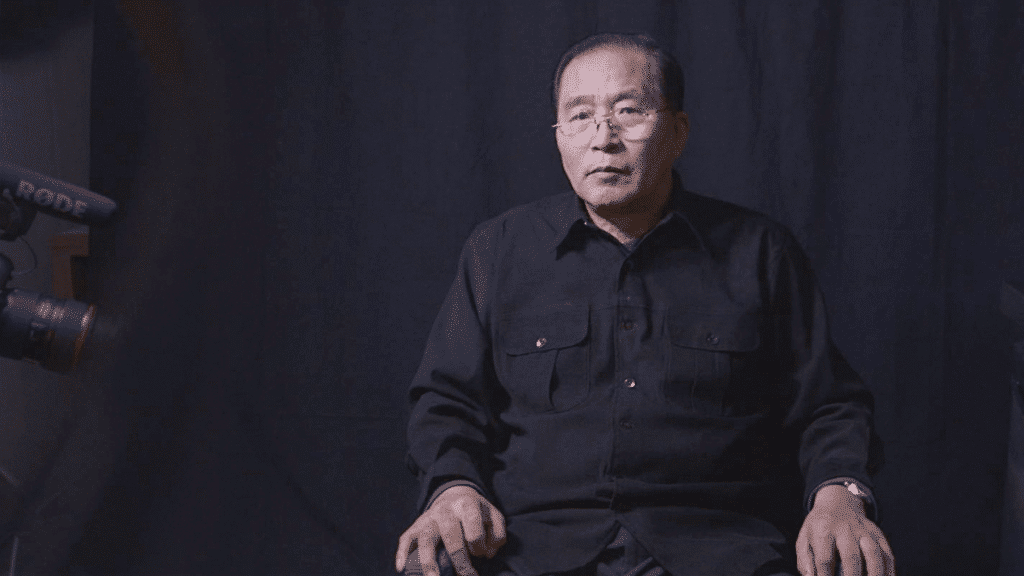
In the book, Mr. Han, the former labor camp director, tells the story of how he unwillingly became an accomplice in the brutal torturing of a 15-year-old girl in one of his criminal institutions, how he had tried to change the system from within but failed, and ultimately left China to prevent himself from being an accomplice any longer.
Excerpt from Chapter 12: “The Wedge” in Who Are China’s Walking Dead?:
He told a story that described the fatal wedge that had been hammered hard and deep between himself and his beloved Party. It was this wedge that drove a terrible fear into him and drove him out of his homeland. But it was not a fear of what the Party might do to him physically. It was a fear of what the Party would do to his mind—what he would become if he stayed on the Party path.
“It was a conflict of values,” he said at the only point during the interview where both his outer guard and inner guard had fallen down. “I had developed my own opinions about the CCP. But of course I didn’t say those things out loud,” he emphasized. I imagined he shuddered at the thought of the consequences of speaking against the Party. But he didn’t flinch.
“For a long time I wanted to make changes from within, I wanted to push forward and promote progress within the system. Later on I realized I was just a tiny ant. I absolutely couldn’t change anything.”
He paused longer. A mixture of guilt and grief were upon his face, but he kept his chin high and his eyes wide. His face was the most open at that very moment of all the officials we had ever met. He gulped silently, but I saw it. He opened his mouth and left it open for many moments, as if it wouldn’t close by itself. He inhaled and exhaled slowly, as if to disguise his heavy breaths. But his reaction was unmistakable.
He swallowed before recalling that final defining moment of leaving the Walking Dead.
“Because I had no way to change anything, I decided that at least I am not going to be an accomplice, so I chose a different path,” his voice cracked ever so slightly and he swallowed again, flushing away any drops of fluid that might form a tear in his eye. “I chose to leave,” he concluded.
He looked at me for a few seconds, his head gently nodding.
His choice had eventually become clear. If he stayed in China he would join the ranks of the Walking Dead. He would betray his conscience, participate directly in the anti-human functions of his departments, and forgo his soul. His alternative was to leave everything he knew and loved, and seek refuge with his Party’s enemy—the West. There he would be scorned by the Party-led Chinese diaspora as an “anti-Chinese traitor” and be interrogated by the authorities who would question his motives, his sincerity, his loyalties. And he would be dependent on translators he didn’t know to present his truth for him in the West.
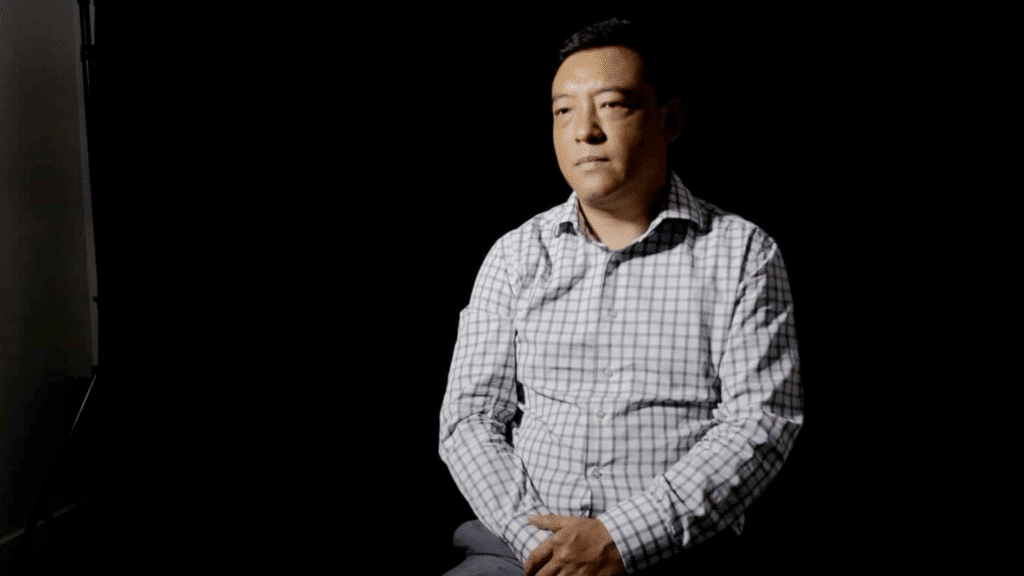
Mr. Hao, a former national security agent and 6-10 Officer, tells the story of how he was arrested and imprisoned for a month and his bosses lied to his family (they told them he was on a business trip) because he refused to lie on camera for CCP media in relation to the persecution of Falun Gong.
Excerpt from Chapter 13: “Turning Points” in Who Are China’s Walking Dead?
I watched him curiously as he tilted his head down and wiped his eyes with his fingers. Then we looked at each other. Years of interrogation and intelligence training had earned him the perfect poker face. He was calm and steady and revealed no emotion in his responses. But for a very brief moment his eyes flashed with suspicion—possibly anger—questioning my motives. For a brief moment, our interviewer-interviewee trust was broken. He questioned if I wanted the lights to make his eyes water to make him appear emotional on camera. I reassured him it was not.
I’d been told that he wasn’t willing to do interviews much these days. It had been ten years since his high-profile defection from the CCP, and he was now busy running his own small business. I had been warned and prepped that he might not turn up for the interview. That had happened the last time my contact had scheduled an interview with him and another media. So I was very grateful that he had come and was still sitting beneath our imperfect lighting.
The light brightness was fixed and I thanked him. I knew he was acutely aware of how the CCP uses cameras to twist and turn their subjects, but we had no intention of using such CCP propaganda techniques in our interviews. Facts were all we were after.
The Officer resumed his poker face and I continued my questioning.
“What made you leave China?” I asked.
[ . . . ]
“The reason I left China was because of the suppression of Falun Gong. What I saw in jails and labor camps when I went to interrogate Falun Gong practitioners shocked me too much. Also some filming of Falun Gong practitioners by CCTV when they created some false propaganda harmed me personally, but it also enlightened me.”
Emergence into a ‘Cruel and Dark’ World
When documentary filmmaker, Kay Rubacek of Swoop Films, began interviewing former Chinese Communist Party (CCP) officials for her award-winning movie, Finding Courage, she was shocked when they described themselves as the “Walking Dead.” As she found and interviewed more CCP officials—including a labor camp director, a propaganda official, a criminal court judge, an army colonel, a diplomat, a national security agent, and a CCP role-model student, among others—she found that their experiences lifted the veil on the opaque world of China’s officialdom.

Kay Rubacek is an author, producer, and director of award-winning non-fiction works. Her family members escaped communism in Russia, China, and the former Czechoslovakia between 1918 and 1986, and she was arrested in China in 2001 for being a human rights advocate. Born and raised in Sydney, Australia, she now lives in New York’s Hudson Valley with her husband and two children and works as a director/producer for New York-based film production company, Swoop Films.
“The world of CCP officialdom is very cruel and dark,” said the Labor Camp Director. “We had to know that propaganda and reality are disconnected,” said the Propaganda Official. “The law is only for people who are low-class—who don’t have any connections,” said the Chinese Diplomat. “You are forced to tell lies. It won’t work if you don’t tell lies. As a result, everyone becomes a liar,” said the High-Ranking Official.
Rubacek creates an engaging and eye-opening narrative by cleverly weaving together her interviews with the CCP officials and detailed research, including leaked CCP directives, documents. Each chapter reveals fresh insights into what drives the CCP regime today, how the CCPs operatives—CCP officials—rise and fall in rank, and how the CCP culture has shaped the lives of more than a billion people in the world’s most populous nation.
Who Are China’s Walking Dead? is available on Amazon.com and Barnes&Noble.
For more information visit: www.ChinasWalkingDead.com.
Please contact Timothy Gebhart ([email protected] or 503-855-8050) to know more about Who Are China’s Walking Dead? (Liberty Hill Press, 2020) or to schedule an interview with Kay Rubacek.
###



